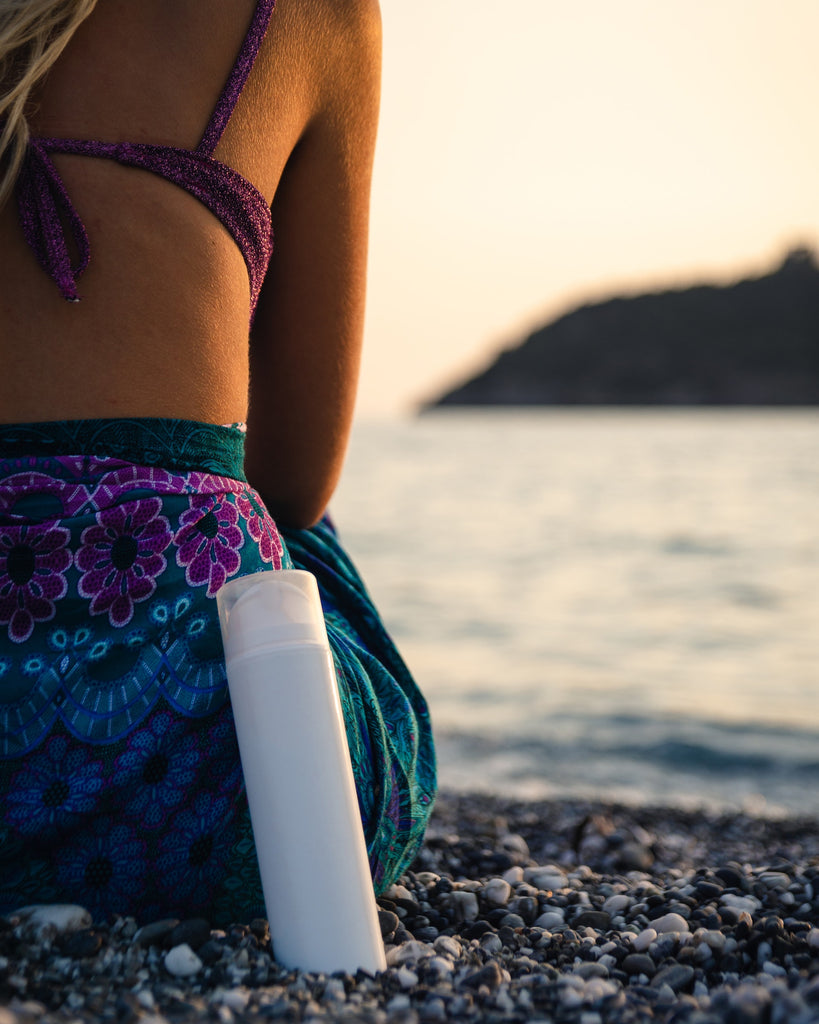
As we gear up for sunny weather, it is crucial to remember the importance of sunscreen in safeguarding our skin against aging and the risk of skin cancer. According to a report by The World Health Organization, sun exposure contributes to up to 90% of the visible changes commonly associated with aging. This statistic highlights the significant impact that the sun's rays can have on our skin's health and appearance.
Sunscreen plays a pivotal role in combating signs of aging caused by sun exposure. UV rays from the sun penetrate the skin, causing damage to collagen fibres, leading to wrinkles, fine lines, and sagging skin.
By wearing sunscreen daily, you create a barrier that helps block these harmful rays and prevent their detrimental effects on your skin's youthful appearance and even worse - potential skin cancer!
Can Essential Oils Be Used for Sunscreen?
Sunscreen is an essential tool for protecting your skin from the damaging effects of sun overexposure. However, you may have wondered if essential oils can be used as a natural alternative for sunscreen. In this article, we will explore whether essential oils can effectively protect your skin from the sun's harmful rays.
The Myth of Essential Oils as Sunscreen
Contrary to popular belief, there is no essential oil that can provide a high Sun Protection Factor (SPF) of 50 or even come close to that level of protection. Even if such an essential oil existed, it would need to be applied undiluted and generously to maintain its sun protection properties.
However, using undiluted essential oils can be too strong for the skin and may cause sensitisation or severe skin problems. Additionally, mixing essential oils with other carrier oils, as you would for a massage oil, dilutes the sun protection and can result in severe sunburn if relied upon as sunscreen.
Therefore, it is essential to understand that essential oils alone cannot be a reliable substitute for sunscreen.

Photosensitive Essential Oils
While some essential oils are safe for use in the sun, there are certain oils known as "photosensitive" or "phototoxic" essential oils that should never be applied to the skin and then exposed to sunlight. These oils contain furocoumarins, which can increase the risk of skin cancer when combined with sun exposure.
To ensure your safety, it is important to avoid using the following popular photosensitive essential oils in sun lotions or any body lotions:
- Clary sage (Salvia sclarea)
- Coriander (Coriandrum sativum)
- Black pepper (Piper nigrum)
- Bergamot (Citrus aurantium var. bergamia)
- Neroli (Citrus aurantium var. amara)
- Ginger (Zingiber officinale)
- Lemon (Citrus limonum)
- Lime (Citrus aurantifolia)
- Grapefruit (Citrus paradisi)

The Importance of Sunscreen
Skin cancer, particularly melanoma, is a serious health concern. In the UK alone, 1 in 36 males and 1 in 47 females will be diagnosed with melanoma skin cancer during their lifetime. However, 86% of melanoma cases in the UK are preventable. Sunburn significantly increases the risk of skin cancer, and it can occur even on cloudy days or in the UK climate. It is crucial to protect your skin from the sun's harmful effects to reduce the risk of developing skin cancer.
When purchasing sunscreen, there are several factors to consider:
- Sun Protection Factor (SPF): Look for a sunscreen with an SPF of at least 30 to protect against UVB radiation.
- UVA Protection: Ensure the sunscreen has at least 4-star UVA protection or displays the "UVA" symbol within a circle, meeting the EU standard.
- Expiry Date: Check that the sunscreen is not past its expiry date for optimal effectiveness.
- Sun Protection Measures: Remember that sunscreen alone is not enough to protect yourself from the sun. Wear suitable clothing, seek shade when the sun is at its hottest, and avoid spending excessive time in the sun, even with sunscreen.
To learn more about sunscreen and its importance, you can visit the British Skin Foundation's article on sunscreen or download The Sunscreen Fact Sheet from the British Association of Dermatologists.
In conclusion, while essential oils can offer various benefits, they are not a reliable substitute for sunscreen. Essential oils do not provide sufficient SPF protection, and some oils can even increase the risk of skin cancer when exposed to sunlight. It is crucial to use a reputable sunscreen with adequate SPF.



0 comments